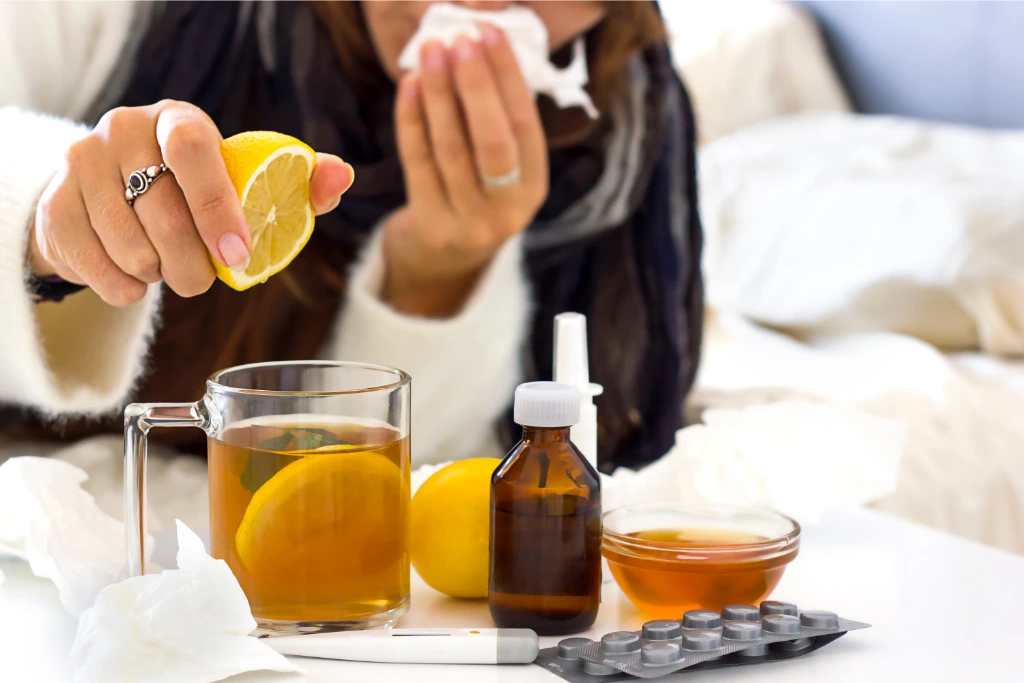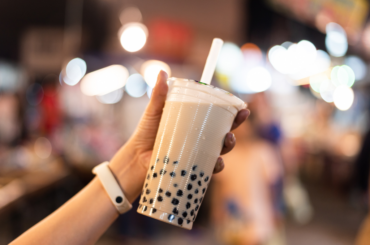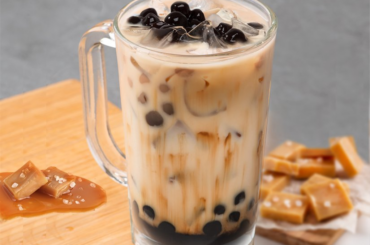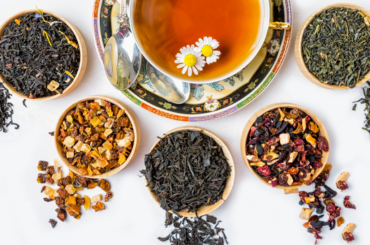It’s pretty common to brew yourself a nice warm cup of tea to drink when sick. It has been a practice that existed for several centuries after a Chinese Emperor discovered its medicinal properties.
When you feel like you’re coming down with a common cold or flu, it’s important to take caffeine-free liquids to keep you hydrated. Hot tea is one of the most common remedies for breaking up congestion and sore throat. Sipping a hot drink is a comforting remedy when feeling under the weather.
What is it about teas that are so effective in making you feel better at fighting colds and flu? Multiple studies have shown the health benefits of teas. They boost your immune system so your body can fight various illnesses.
Several studies prove the effectiveness of herbal tea ingredients in treating respiratory infection symptoms. However, there’s no specific research about fighting the common cold, so it’s still best to consult your doctor when symptoms get too much to handle.
Some brews may be more effective than others in affording relief against colds, sore throat, and an oncoming bout of flu. So what tea is best for colds and flu? Prepare your kettle as we share some of the best teas that help with cold relief.
Best Teas for Colds and Flu
- Chamomile
- Echinacea
- Elderberry
- Ginger
- Green Tea
- Hibiscus
- Lemon
- Nettle
- Peppermint
- Herbal Tea with Honey
Chamomile

Several people report chamomile tea to be effective against common cold symptoms. A study suggests that steam inhalation of chamomile extract can help unclog the nasal passages and afford relief. However, this needs more studies. But one thing is sure.
On top of keeping yourself hydrated, your doctor would most likely advise you to rest. However, sleeping can be challenging when you have a stuffy nose or a sore throat.
It may not be proven to be the best herbal tea for colds, but it’s effective in helping people relax and fall asleep. Most experts believe it’s due to apigenin, a flavonoid compound with sleep-inducing functions. Apigenin activates the GABA A receptors responsible for sleep stimulation.
While it may not be proven to improve sleep quality, it can help you prepare for bed while you have the sniffles.
Additionally, the flowers of chamomile tea have flavonoids. Flavonoids have antioxidant and anti-inflammatory effects that can help your body ward off toxins that may cause cold and sore throat.
Echinacea

Another best tea to consider for colds is echinacea. There are conflicting studies about its effect on colds. However, this herb from the purple coneflower is great for strengthening the immune system. When you have a strong immune system, it helps your body recover faster.
A study showed that consuming echinacea tea shortens the duration of upper respiratory illnesses and flu. However, further research is necessary to confirm its effectiveness.
If you’re taking echinacea, it’s best paired with ginger tea to maximize its effect.
Elderberry

The elderberry comes from the dark purple berry of Europe. The black elder, the most common form of this tea, is also proven to have antimicrobial and antiviral characteristics.
Like echinacea, taking elderberry tea for flu is more for shortening the duration of the condition. It will help you recover more quickly from the symptoms. However, no specific research looks into the effectiveness of elderberry tea for colds.
Ginger

Ask anyone what the best tea for colds and sore throats is, and one of the common answers you will hear is ginger tea.
There’s not enough evidence to show that drinking tea can treat colds. But a review pointed out that ginger tea is great for preventing and alleviating the symptoms of a cold, including congestion, inflammation, and sore throat. So there’s no harm in adding it to your arsenal of medical supplies.
Ginger tea has been widely used as a home remedy for colds and sore throats. Since it has anti-inflammatory and antibacterial qualities that help manage pain and swelling.
Since ginger has a spicy flavor, it’s best to take it with honey to add sweetness. You can also pair it with dried fruits like apples, berries, dates, grapes, and peaches.
Green Tea

One of the most popular teas worldwide is green tea, and it’s understandable why. Many studies have proven its high levels of antioxidant properties. You will want this if your body is under attack from bacteria and viruses. It’s safe to say that green tea can help strengthen your immune system and encourage a healthy metabolism.
Is it among the teas that help with a cold? This needs more research. But green tea may help give you a boost of energy when you’re down with a cold. This is especially useful when you still have to power through your day while struggling with congestion.
While it may not be proven to treat colds and flu, lab studies suggest regular green tea consumption can prevent you from catching it. Its immune-boosting properties also help you recover faster.
Hibiscus

The hibiscus flower is not only a favorite among gardeners. They are also popular among tea drinkers. It might be your go-to tea when you’re down with a terrible cold and flu. For its antioxidant properties, it takes its place among the best teas for colds and flu. These brightly colored flowers are one of the most delicious red tea that comes with a tangy tartness.
Drinking hibiscus tea offers comfort from the agonizing symptoms of common colds and flu, such as runny nose, sore throat, fatigue, cough, and chills. Unlike other teas, hibiscus tea has a natural alkalizing way of relieving the symptoms. It’s also good for boosting the immune system, allowing you to recover from cold or flu quickly.
Lemon

Do you know why they say to drink lots of vitamin C to help fight colds? Vitamin C is a critical nutrient your body needs to fight the bacteria and viruses that cause colds and flu.
So if you don’t have time to squeeze lemon juice, brewing a lemon tea is your best shot. However, it’s important to note that its effect on cold and flu treatments is mostly anecdotal. Many tea lovers claim lemon tea helps decongest the nose and reduce pain from sore throat.
Nettle

Nettle may not be on the regular list of the best teas for colds and sore throats. But this plant has been used since ancient times for its high levels of vitamins and minerals. Nettle plants are rich in carotene and vitamin C, which help fight bacteria and boost the immune system.
Additionally, nettle is also effective in relieving itching and sneezing while improving iron levels. So if your common cold has you frequently sneezing due to a runny nose, drinking nettle tea may help.
Peppermint

Peppermint is known for its menthol property. This is why most cough drops have peppermint as one of the main ingredients. So consuming peppermint tea can provide the same relief. This menthol flavor can relieve congestion, allowing you to breathe easily. They’re also helpful for reducing inflammation and body pain from the flu.
What’s great about peppermint tea is that it doesn’t have caffeine, unlike green tea. It also has a relaxing effect, promoting relaxation.
Even the US Department of Agriculture listed that peppermint has antiviral and anti-inflammatory effects. Some even use the vapors of peppermint tea to help with nasal congestion.
Herbal Tea with Honey

You can concoct an assortment of dried fruits, herbs, and spices to make a herbal tea for your colds and sore throat. They’re great since they don’t contain caffeine that can further dehydrate you. The great thing about making herbal honey and mixing it with honey is that it’s rich in flavor and emits a soothing scent. Plus, you don’t have to worry about the sweetness contributing to your sore throat.
Honey is also effective in suppressing cough. A study on young children showed that honey effectively reduces nighttime coughing and improves sleep. Adding honey to your herbal tea also soothes pain, loosens phlegm, and reduces coughing.
Other Home Remedies
You don’t necessarily have to go to the hospital when you’re suffering from the common cold, especially if it’s not severe. There are home treatment options you can explore to help you recover faster from a cold or flu. Here are some of them:
- Hydration. Drinking at least eight to ten glasses of water and other fluids is a must when you’re down with a cold or flu. Keeping your body hydrated improves the recovery process. Do this even if you don’t have a cold so you can have a stronger immune response.
- Zinc Supplementation. Taking zinc within the first 24 hours of your symptoms helps you recover from your symptoms quickly.
- OTC Medicines. While it’s always best to go natural, taking over-the-counter medications is no harm. If you’re experiencing associated headaches and fever, taking analgesics and antipyretics is okay.
- Cough Drops. The flu can cause a scratchy throat leading to frequent coughing, which can be annoying. Keep the coughing at bay with cough drops. It also helps lessen the sore throat.
Best Tea for Colds and Flu
Drinking tea can be a soothing and natural way of treating cold symptoms. But they’re also great for boosting your immune system. That said, it will never hurt to have a hot or warm throat-soothing cup, even if you’re not feeling under the weather!





